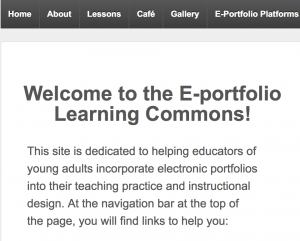I am learning about media literacy in the ETEC531: Cultural and New Media Studies course. The question of whether media education important enough to be requirement in education is something that interested me. I recall a point made by Sir Ken Robinson, in his Do Schools Kill Creativity Ted Talk (2006). He mentions “education is meant to take us into a future we can’t grasp”. We are walking into the future, but trying to base it on the past. Because of this, and the rapidly changing technologies, teaching media literacy is particularly challenging.
That being said, it does make sense for media literacy education objectives to cover the past practises, in addition to the most current practices, to serve as a foundation for future knowledge to be built upon. If educators focus on digital media which is only 20 or 30 years old, the affordances of newer forms of digital media will not be fully understood or appreciated. If the previous forms are neglected, then the context, progression, and development of those technologies would not be understood or valued. Experts have noted this difficulty to “fully capture the diversity of ‘past’ ideas and experiences that shape our practices” and “how can we capture the ‘present’ state of media literacy education worldwide”.

